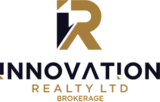Buying a home in Ottawa can be an exciting adventure, but it also comes with challenges. Navigating the real estate market requires careful planning and attention to detail. Whether you're a first-time buyer or looking to upgrade, understanding how to avoid common mistakes can save you money and stress.
Understanding Your Budget and Financial Limits
Understanding your budget is the first step when buying a home in Ottawa. It’s important to know how much you can realistically spend to avoid future financial stress. Start by reviewing your savings, income, and ongoing expenses. This helps determine what you can afford for monthly mortgage payments without feeling strained.
A mortgage pre-approval provides valuable insight into your financial limits. This process involves a lender assessing your financial situation and giving a clear picture of how much they are willing to lend. Knowing this amount helps set a budget and avoid looking at homes beyond your financial reach. It's also a great tool to gain negotiating power when making offers.
Factor in additional costs that come with purchasing a home. These include closing costs, taxes, home insurance, utilities, and potential renovation expenses. Having a buffer for these costs ensures you're well-prepared financially.
Key Budget Considerations:
- Income & Expenses: Review monthly finances.
- Mortgage Pre-Approval: Understand lending limits.
- Additional Costs: Closing fees, taxes, insurance.
Knowing your finances deeply helps make informed decisions and guides you toward homes that fit comfortably within your budget. This way, you can focus on finding the perfect place without added stress.
Researching Neighbourhoods and Local Amenities
Researching neighbourhoods is crucial to finding the right home in Ottawa. Each area offers unique qualities that can affect your daily life. Knowing what you need helps narrow choices and ensures you pick a location that matches your lifestyle.
Start by listing what's important to you in a neighbourhood. Consider proximity to work, schools, parks, shopping centres, and public transport. Family-friendly areas might require good schools and playgrounds, while young professionals may prefer vibrant areas with easy commutes.
Exploring areas in person provides valuable insights into the community vibe. Walk around at different times of the day to see how it feels and how safe you find it. Talk to residents to gather their perspectives on living in the area.
Essential Neighbourhood Features:
- Proximity: Access to work, schools, shops.
- Community Vibe: Safety, friendliness.
- Amenities: Parks, public transport.
By thoroughly researching neighbourhoods and their amenities, you ensure the area complements your preferences and needs. This detail-oriented approach guides you toward a satisfying choice for your future home.
Inspecting Properties Thoroughly Before Buying
Inspecting properties carefully is essential to avoid unexpected surprises after your purchase. A property might look perfect on the surface, but deeper issues can exist that significantly impact finances and safety. Conducting thorough inspections helps identify problems early and saves stress down the road.
Hiring a professional home inspector is a wise decision. These experts can spot issues like faulty wiring, leaks, structural defects, or mould. Their detailed reports provide a clear picture of a home's condition, helping you decide whether to proceed with the purchase or negotiate repairs.
When inspecting properties, pay attention to areas commonly associated with issues. Basements are prone to dampness that could signal water problems. Roofs, too, need checking for damage that could cause leaks. Don’t overlook plumbing and electrical systems, as they are vital for a safe living environment.
Inspection Checklist:
- Hire a Professional Inspector: Get an expert report.
- Check Basements: Look for damp or mould.
- Roof Condition: Ensure no damage or leaks.
- Systems: Assess plumbing and electrical status.
Taking the time to inspect thoroughly provides peace of mind and confidence in your buying choice. It ensures your new home is safe, sound, and free from costly hidden problems.
Navigating the Real Estate Process Efficiently
Navigating the real estate process efficiently involves understanding each step and preparing accordingly. This ensures you stay on track and avoid common pitfalls that could delay or complicate your purchase.
The first stage involves preparing all necessary documents. These include your pre-approval letter, proof of income, and identification. Having these ready streamlines the mortgage application and makes the closing process smoother.
Once you find a home you love, the next step is making a competitive and strategic offer. Be sure to consider comparable sales in the area. This information helps formulate a strong offer that is fair and appealing to sellers.
Once your offer is accepted, conduct a final walk-through. This ensures everything is in the condition agreed upon, checking repairs and ensuring all is ready before finalising the purchase.
Efficient Process Tips:
- Prepare Documents: Pre-approval, income proof.
- Make Informed Offers: Research comparables.
- Final Walk-Through: Verify conditions before closing.
Understanding and following these steps carefully make the buying process less overwhelming, ensuring a successful and stress-free purchase.
Conclusion
Avoiding common mistakes when buying a home in Ottawa involves a clear understanding of your budget, thorough neighbourhood research, detailed property inspections, and efficient navigation through the purchase process. By following these guidelines, buyers can confidently make informed decisions, ensuring their home-buying experience in Ottawa is positive and rewarding.
When you're ready to dive deep into Ottawa’s real estate landscape, turn to Jennifer Ritskes for expert guidance. As a reliable real estate agent in Ottawa, Jennifer ensures your journey to finding the perfect home is as smooth and stress-free as possible. Reach out today to take the first step towards owning your dream home!



